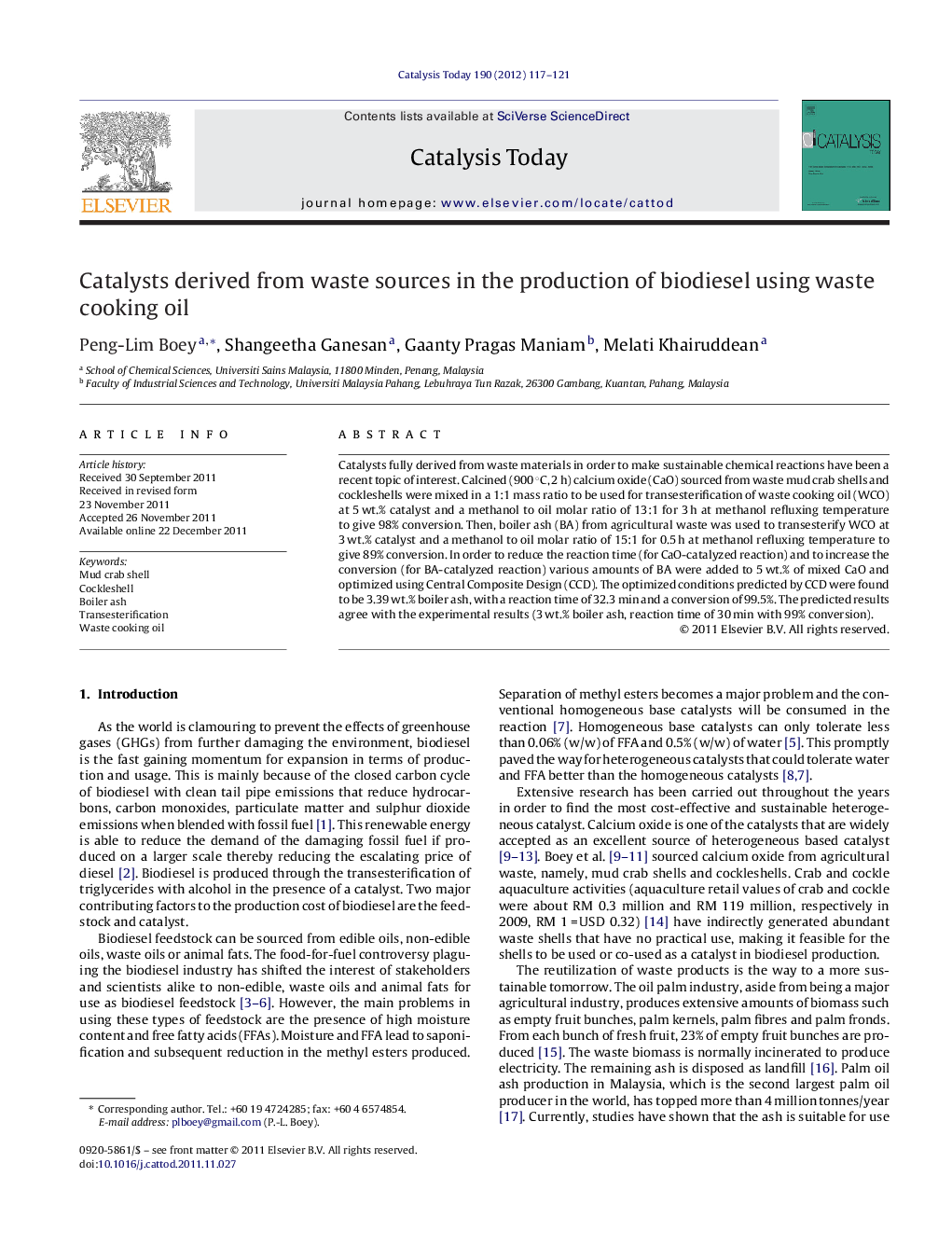| Article ID | Journal | Published Year | Pages | File Type |
|---|---|---|---|---|
| 55242 | Catalysis Today | 2012 | 5 Pages |
Catalysts fully derived from waste materials in order to make sustainable chemical reactions have been a recent topic of interest. Calcined (900 °C, 2 h) calcium oxide (CaO) sourced from waste mud crab shells and cockleshells were mixed in a 1:1 mass ratio to be used for transesterification of waste cooking oil (WCO) at 5 wt.% catalyst and a methanol to oil molar ratio of 13:1 for 3 h at methanol refluxing temperature to give 98% conversion. Then, boiler ash (BA) from agricultural waste was used to transesterify WCO at 3 wt.% catalyst and a methanol to oil molar ratio of 15:1 for 0.5 h at methanol refluxing temperature to give 89% conversion. In order to reduce the reaction time (for CaO-catalyzed reaction) and to increase the conversion (for BA-catalyzed reaction) various amounts of BA were added to 5 wt.% of mixed CaO and optimized using Central Composite Design (CCD). The optimized conditions predicted by CCD were found to be 3.39 wt.% boiler ash, with a reaction time of 32.3 min and a conversion of 99.5%. The predicted results agree with the experimental results (3 wt.% boiler ash, reaction time of 30 min with 99% conversion).
Graphical abstractFigure optionsDownload full-size imageDownload high-quality image (208 K)Download as PowerPoint slideHighlights► Mixed CaO (mud crab and cockle shells 1:1 mass ratio) gives 98% methyl esters conversion at 5 wt.% catalyst concentration; 13:1 methanol to oil molar ratio and 3 h reaction time. ► Boiler ash gives 89% methyl esters conversion at 3 wt.% catalyst concentration; 15:1 methanol to oil molar ratio and 0.5 h reaction time. ► Mixture of 3 wt.% boiler ash and 5 wt.% mixed CaO gives 99% conversion in 0.5 h at 15:1 methanol:oil molar ratio. ► The conditions were optimized using Central Composite Design (CCD).
